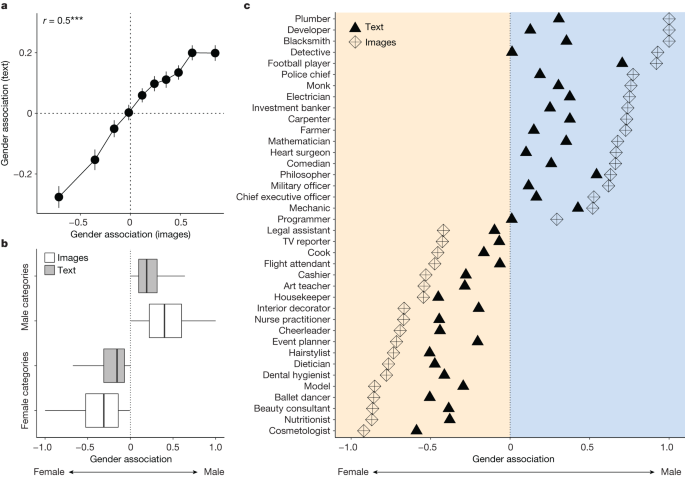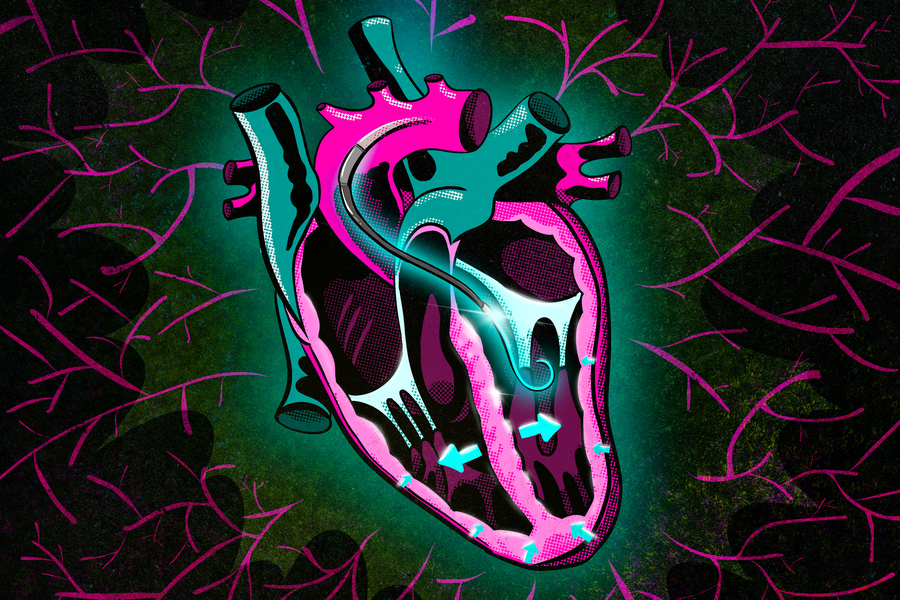2024-02-14 カリフォルニア大学バークレー校(UCB)
◆ダグラス・ギルボーとソレーヌ・ドゥルクールトの教授らによる一連の実験、観察、そして大規模言語モデルの助けを得た研究によれば、Googleから取得した画像の中で女性と男性のジェンダーの関連は、Googleニュースのテキストよりも極端であることが分かりました。さらに、テキストはわずかに男性に焦点を当てていますが、この偏りは画像では4倍以上強いことが分かりました。オンラインのジェンダー・バイアスは画像の中でより顕著であり、そのようなバイアスは視覚的な形式では心理的により強力であることが研究で明らかになりました。
<関連情報>
- https://newsroom.haas.berkeley.edu/research/internet-images-may-be-turning-back-the-clock-on-gender-bias-research-finds/
- https://www.nature.com/articles/s41586-024-07068-x
オンライン画像はジェンダー・バイアスを増幅する Online images amplify gender bias
Douglas Guilbeault,Solène Delecourt,Tasker Hull,Bhargav Srinivasa Desikan,Mark Chu & Ethan Nadler
Nature Published:14 February 2024
DOI:https://doi.org/10.1038/s41586-024-07068-x

Abstract
Each year, people spend less time reading and more time viewing images1, which are proliferating online2,3,4. Images from platforms such as Google and Wikipedia are downloaded by millions every day2,5,6, and millions more are interacting through social media, such as Instagram and TikTok, that primarily consist of exchanging visual content. In parallel, news agencies and digital advertisers are increasingly capturing attention online through the use of images7,8, which people process more quickly, implicitly and memorably than text9,10,11,12. Here we show that the rise of images online significantly exacerbates gender bias, both in its statistical prevalence and its psychological impact. We examine the gender associations of 3,495 social categories (such as ‘nurse’ or ‘banker’) in more than one million images from Google, Wikipedia and Internet Movie Database (IMDb), and in billions of words from these platforms. We find that gender bias is consistently more prevalent in images than text for both female- and male-typed categories. We also show that the documented underrepresentation of women online13,14,15,16,17,18 is substantially worse in images than in text, public opinion and US census data. Finally, we conducted a nationally representative, preregistered experiment that shows that googling for images rather than textual descriptions of occupations amplifies gender bias in participants’ beliefs. Addressing the societal effect of this large-scale shift towards visual communication will be essential for developing a fair and inclusive future for the internet.


